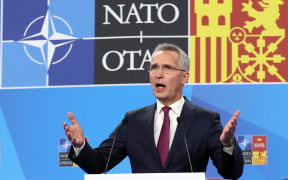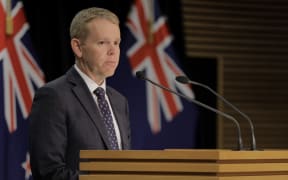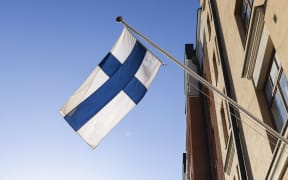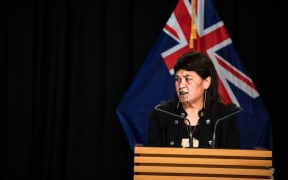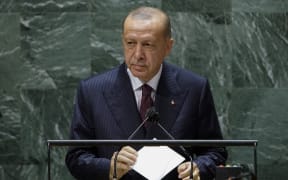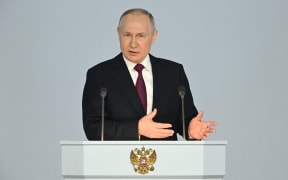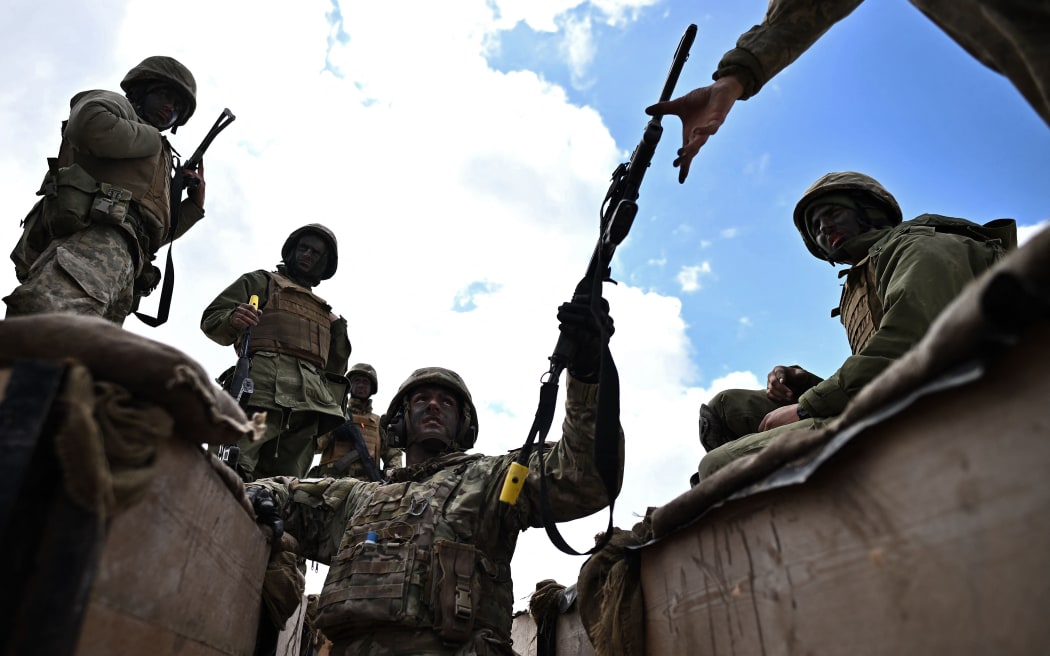
A member of New Zealand's armed forces personnel (centre) passes a weapon back to a Ukraine Army recruit, after giving a demonstration inside a trench, during a trench warfare training session at a British Ministry of Defence training base in southern England on 27 March, 2023. Photo: AFP / Ben Stansall
Prime Minister Chris Hipkins has been invited to attend this year's NATO Leaders' Summit, as the military alliance looks to increase its engagement in the Pacific region.
NATO has invited its four Indo-Pacific partners (Australia, Japan, South Korea and New Zealand) to attend the event, due to be held in July.
Former prime minister Jacinda Ardern attended last year's summit in Madrid and became the first New Zealand leader to address such an event.
Hipkins on Tuesday confirmed he had received the invitation but said he was yet to confirm his international travel plans.
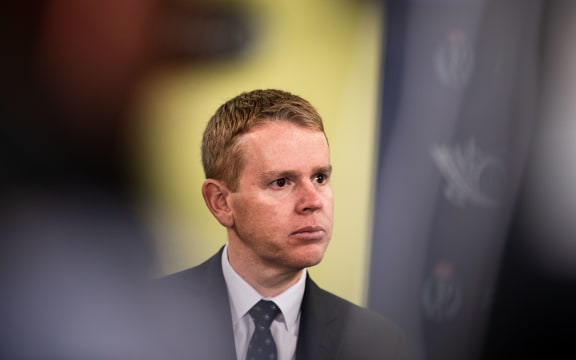
Prime Minister Chris Hipkins Photo: RNZ / Samuel Rillstone
"It's a big year domestically ... including the fact there's another event here in October that I have an interest in [the general election], so my international travel programme won't be massive," Hipkins said.
NATO plays an important part in world security, he said.
"We've remained, as I've always said, independent in our foreign policy and that will continue to be the case. But we will continue to work with like-minded countries.
"If you look at the situation in Ukraine, for example, we have a lot in common with members of NATO when it comes to our position on that particular conflict."
The invitation follows Foreign Minister Nanaia Mahuta's visit to Brussels last week, where she participated in a session of the NATO Foreign Ministers meeting.
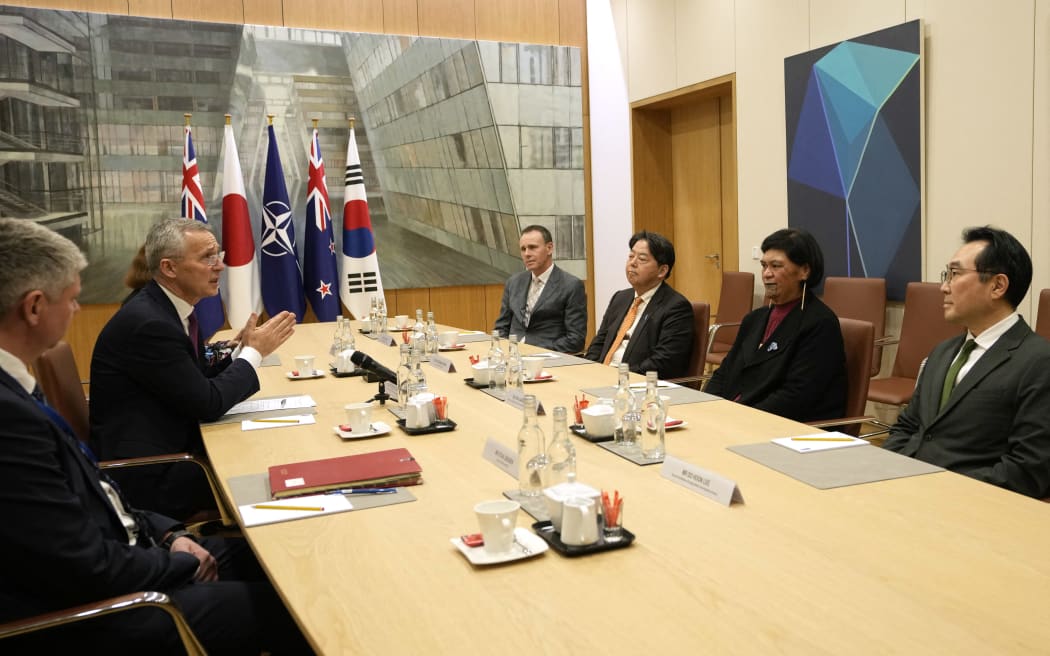
NATO Secretary General Jens Stoltenberg (second from left) speaks with Australia’s deputy head of mission David Dutton (fourth from right), Japan’s Foreign Minister Yoshimasa Hayashi (third from right), New Zealand’s Foreign Minister Nanaia Mahuta (second from right) and South Korea’s Special Representative Lee Do-hoon (right) after the Ministers of Foreign Affairs meeting at the NATO headquarters in Brussels on 5 April, 2023. Photo: Virginia Mayo / Pool / AFP
Top NATO officials have also visited Wellington in recent weeks, prompting some experts to suggest New Zealand had formed a closer relationship with the military alliance.
Mahuta would not say if New Zealand was closer to the military alliance, but said the war in Ukraine had prompted more engagement with the likes of NATO.
"What we're seeing is New Zealand recognises the regional implications of a war in Ukraine, and what might happen in our own region," Mahuta said.
"We need to stay connected to members of the international community who are facing the immediate impacts of war in the region, and then outline what are the potential consequences for us here in our region? And that is why we remain engaged," she said.
"We've been quite consistent in terms of how we reflect our interests where we need to, when we need to, and we should do that.
"We should continue to assert our interests in whatever forum, whether it's ASEAN, or NATO, or, you know, in the Middle East, we should continue to assert and engage with regional architecture that help us say 'these are the things we're concerned about, these are the interests that are at the forefront of our mind' as we're impacted by these global events."
NATO countries set its strategy for the next decade at last year's leaders' summit.
It included a commitment to strengthen ties with partners in the Indo-Pacific to tackle cross-regional challenges and shared security interests.

